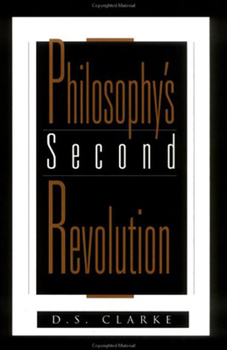Philosophy's Second Revolution: Early and Recent Analytic Philosophy
Select Format
Select Condition 
Book Overview
Since its inception in ancient Greece, Western philosophy has undergone two revolutionary breaks with its past: the first was initiated by Descartes with his 'method of doubt' that led to the questioning of basic assumptions of classical philosophy; the second arose at the beginning of the twentieth century, and is associated with the movement now known as analytic philosophy. D.S. Clarke explains some of the crucial issues raised by the second philosophical revolution, and especially the differences between the early phase of analytic philosophy, covering roughly the first half of the twentieth century, and the new phase which commenced about 1960. As Philosophy's Second Revolution surveys the direction of modern philosophy, it is able to combine discussion of cutting-edge topics with an introductory survey of analytic philosophy for those with little background in logic or history of philosophy. Professor Clarke traces the historical background of the analytic movement from its origins, through its development by applications of logic to philosophical problems and by 'ordinary language' philosophers. He then concentrates on the post-1960 phase, with its rejection of earlier views dominated by Wittgenstein's methods. The new phase features the development of a materialist metaphysics, the attempt to assimilate philosophy to the natural sciences, and the attempt to reinstate normative ethics as a guide to conduct. Clarke defends the first phase against aspects of the second phase, arguing that contemporary materialism rests on the mistaken view that mental language has fact-stating functions, and that normative ethics imposes on moral reasoning a false intellectualist model.
Format:Hardcover
Language:English
ISBN:0812693477
ISBN13:9780812693478
Release Date:October 1999
Publisher:Open Court
Length:256 Pages
Weight:1.32 lbs.
Dimensions:0.8" x 6.4" x 9.3"
Customer Reviews
0 rating





